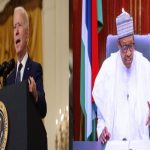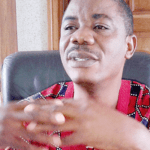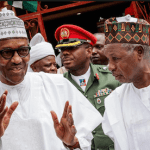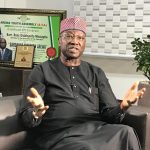The Young African Leaders Initiative (YALI) is the U.S. government’s signature effort to invest in the next generation of African leaders. Since 2010, YALI has graduated more than 24,000 alumni from the Mandela Washington Fellowship exchange program and its four Regional Leadership Centers (RLCs) located across the continent, while membership in the online YALI Network community numbers over 700,000.
YALI alumni have risen to high-ranking leadership positions in the public and private sectors and been recognized with international awards. Five alumni have held or currently hold cabinet-level positions, a Ghanaian Fellowship alumnus and Kenyan RLC alumna won first and second prize in Africa.com’s 2020 Brilliant African Innovations Against COVID-19 Competition, and a Somali Fellowship alumna was nominated for the Nobel Peace Prize in 2019.
With a population of 1.3 billion people whose median age is 19 years old, Africa’s youth are one of the continent’s most important resources. YALI, along with other U.S.-sponsored people-to-people initiatives, showcases the U.S. government’s commitment to strengthening the ties among the people of the United States and Africa. Through its programs, YALI promotes effective public administration; fosters networks that connect people; creates conditions for peace, prosperity, and security; and provides investment opportunities for U.S. businesses.
• Mandela Washington Fellowship for Young African Leaders: Launched in 2014, this flagship program brings 700 Fellows aged 25-35 to the United States each year to participate in six-week Leadership Institutes, studying Business, Civic Engagement, or Public Management at U.S. colleges or universities. During their time on campus, Fellows connect with Americans and enrich local U.S. communities while sharing best practices. The Reciprocal Exchange component provides opportunities for Americans to travel to Africa to work with Fellowship Alumni on issues of importance to both the United States and Africa while contributing to U.S. public diplomacy efforts.
• Regional Leadership Centers: Managed by the United States Agency for International Development, the RLCs provide YALI’s signature on-continent leadership and professional development training experiences at higher education institutions in Nairobi, Kenya; Dakar, Senegal; Accra, Ghana; and Pretoria, South Africa. Since 2015, they have provided more than 20,000 young leaders aged 18-35 with state-of-the-art leadership training in three tracks: public management, civic engagement, and business and entrepreneurship. The RLCs leverage resources from the private sector, both U.S. and African companies, and serve as a place for regional collaboration. They offer training primarily in English, with some offerings in French and Portuguese.
• YALI Network: The YALI Network is a virtual community of more than 700,000 members across Sub-Saharan Africa. Through its digital campaigns, the YALI Network develops members’ capacity to advocate for U.S. policy priorities in a local context. To support these campaigns, the Network’s website provides vital online resources, content, and courses. In addition to online activities, campaigns inspire offline advocacy by encouraging members to lead service activities and to hold “YALILearns” events, during which members facilitate community dialogues on policy-focused campaign topics.
For further information visit: yali.state.gov.













